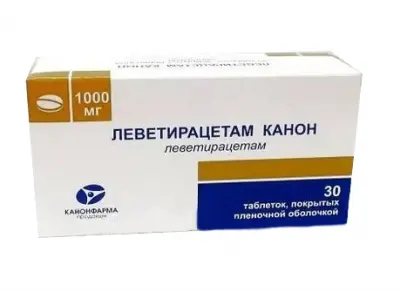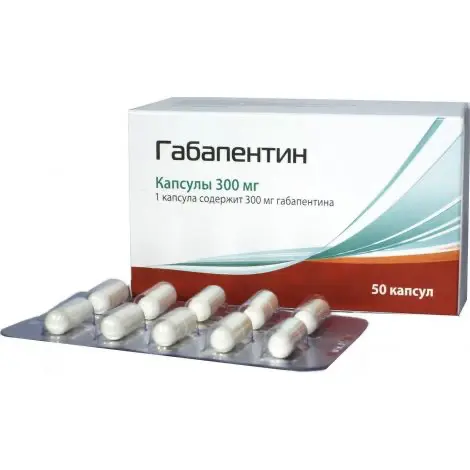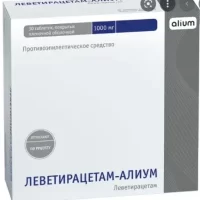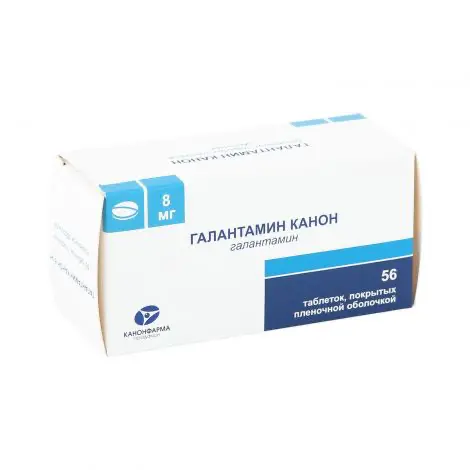Description
Levetiracetam-Canon Pharmacodynamics
Antiepileptic agent, pyrrolidone derivative (S-enantiomer of ?-ethyl-2-oxo-1-pyrrolidine-acetamide). The chemical structure differs from known antiepileptic drugs. The mechanism of action of levetiracetam is not fully understood, but it is obvious that it differs from the mechanism of action of known antiepileptic drugs.
In vitro studies have shown that levetiracetam affects the intraneuronal concentration of Ca2+ ions by partially inhibiting the Ca2+ flow through N-type channels and reducing the release of calcium from intraneuronal depots. In addition, levetiracetam partially restores currents through GABA- and glycine-dependent channels reduced by zinc and ?-carbolines.
One putative mechanism is based on proven binding to the glycoprotein of synaptic SV2A vesicles contained in the gray matter of the brain and spinal cord. It is believed that in this way the anticonvulsant effect is realized, which is expressed in the counteraction of hypersynchronization of neuronal activity. It does not alter normal neurotransmission, but suppresses epileptiform neuronal bursts induced by the GABA agonist bicuculline and glutamate receptor excitation. Levetiracitam activity has been confirmed for both focal and generalized epileptic seizures (epileptiform manifestations/photoparoxysmal response).
Indications
As monotherapy for treatment of partial seizures with or without secondary generalization in patients from 16 years of age with newly diagnosed epilepsy.
As adjunctive therapy: partial seizures with or without secondary generalization in patients with epilepsy from 4 years (for IV administration) or from 6 years (for oral administration); myoclonic seizures in patients with juvenile myoclonic epilepsy from 12 years; primary generalized tonic-clonic seizures in patients with idiopathic generalized epilepsy in adults and adolescents over 12 years.
Contraindications
Children under 4 years of age (for infusion), children under 6 years of age (for oral administration) hypersensitivity to levetiracetam, hypersensitivity to other pyrrolidone derivatives.
Administration during pregnancy and lactation
Adequate and strictly controlled clinical studies on the safety of levetiracetam use in pregnant women have not been conducted, so levetiracetam should not be used in pregnancy, except in cases of extreme necessity.
Physiological changes in a woman’s body during pregnancy may affect plasma concentrations of levetiracetam, as well as other antiepileptic drugs. A decrease in plasma concentrations of levetiracetam has been noted in pregnancy. This decrease is more pronounced in the first trimester (up to 60% of the baseline concentration in the period preceding pregnancy).
Treatment with levetiracetam in pregnant women should be carried out under special supervision. It should be taken into account that interruptions in antiepileptic therapy may worsen the course of the disease, which is harmful to both the mother and the fetus.
Levetiracetam is excreted with breast milk, so breastfeeding during treatment is not recommended. However, if treatment with levetiracetam is necessary during lactation, the risk/benefit ratio of treatment should be carefully weighed against the importance of breastfeeding.
Dosage and administration method
- For oral administration or intravenous injection as an infusion.
- Single dose is 250-750 mg, depending on indications and patient’s age. Frequency of use – 2 times / day.
- Transition from oral to intravenous administration and vice versa may be performed with preservation of the dose and administration frequency.
- Dosage adjustment is required in patients with renal failure. Dosage regimen adjustment is not required in patients with mild to moderate hepatic impairment. In patients with severe hepatic impairment the CK value may not reflect the true degree of renal impairment, therefore in CK<50 ml/min it is recommended to reduce daily dose by 50%.
- In children, levetiracetam should be used in an appropriate dosage form.





